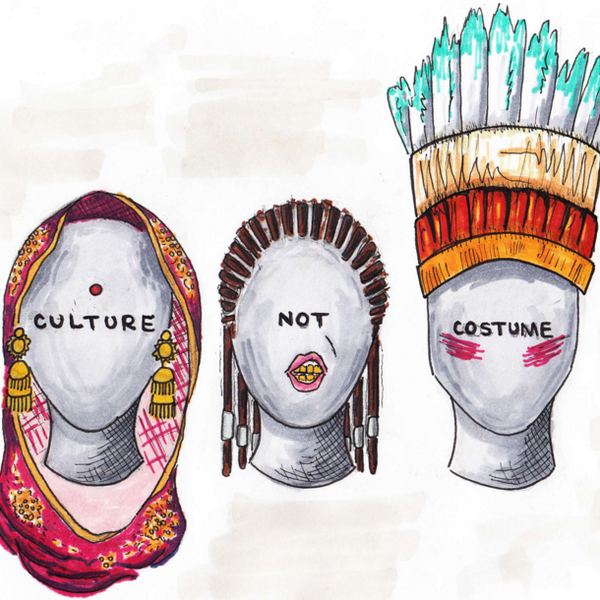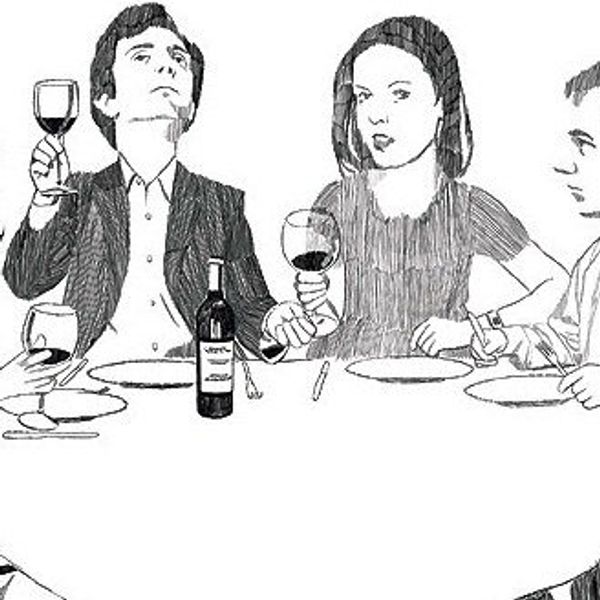In today’s quickly changing times, many different cultures are being brought into light, but in the wrong way. Many people have started taking it upon themselves to delve into other cultures and use them as fashion statements, and while this is a nice way to show that other cultures can be recognized, it is heavily disrespecting them as a whole. To get started, we need to understand the difference between appropriation and appreciation, because the two are entirely different.
Appropriation is the action of taking something for one's own use, typically without the owner's permission. While appreciation is the recognition and enjoyment of the good qualities of someone or something. The two are strikingly different but can easily be confused as the same thing due to the fact that a lot of people don’t know when they are culturally appropriating.
The biggest example of Cultural Appropriation is when white people dread their hair and proceeded to call it a “fashion choice”. While indeed this is a fashion choice, it is not one meant for white people to use for their leisure. Dreadlocks were meant as a quick way to keep thicker types of black hair from getting in the way and become part of the culture for many island people, such as Jamaicans. For years, though, white people mocked the style and called many black people out on it, before using it for themselves and suddenly making it popular. This goes hand and hand with the debate on whether or not cornrows are cultural appropriation (Hint: They are) due to their strong ties with history as well. For years many work places and schools deemed it unacceptable to wear both of these hairstyles until they became popular among people other than blacks. It’d be one thing if people of all races were still getting punished for the hairstyles, but when actresses and models like Miley Cyrus and Kylie Jenner get praised for the above hairstyles, while black females such as Zendaya (Referencing her wearing Dreads to the Oscars and getting comments such as she “smells like patchouli oil ... or weed.") get told they look “ratchet” and other words such as that.
Another example is the use of people wearing dashiki’s as a fashion, while they are a traditional African garment worn in Africa to combat the hot climates, seeing as they are loose articles of clothing. The dashiki found its way into America during the black cultural and political struggles in the 1960s, being used as an outlet for African-Americans to freely express themselves. While it is said that Hippies wore them as a form of counterculture (a subculture whose values and norms of behavior differ substantially from those of mainstream society) that itself is inherently racist in its own way. By wearing a dashiki and saying that “nobody wears it, so it’s cool” is showing that you as a person, don’t care about the racial implications of wearing something with meaning to another culture. Many African-Americans wear Dashikis as a way of connecting with the culture that they lost when they were shipped to America, and by it being ingrained in fashion culture, it ruins the meaning. Many stores, such as Rainbow and even Sears are selling the garment, which, like I previously stated, demeans the purpose of the dashikis.
There are ways to appreciate cultural rather an appropriate, and ways you can do this is by knowing the difference. If you go to the Caribbean and get cornrows done as a way to enjoy the culture while you’re there and take it out once you head home, that’s appreciating a culture and not appropriating it. If you get Henna done before Coachella, because you think it looks cute, rather than have someone from South Asian descent before a wedding as a means of respect, that’s appropriating, not appreciating. Lastly, if you go to a Muslim country and wear a Hijab as means of respect for the culture, you are helping to appreciate, rather than being an American in American wearing one, would be appropriating.
I hope that by reading this you have gained the knowledge needed to understand where the fine line between appreciating becomes appropriating.





















